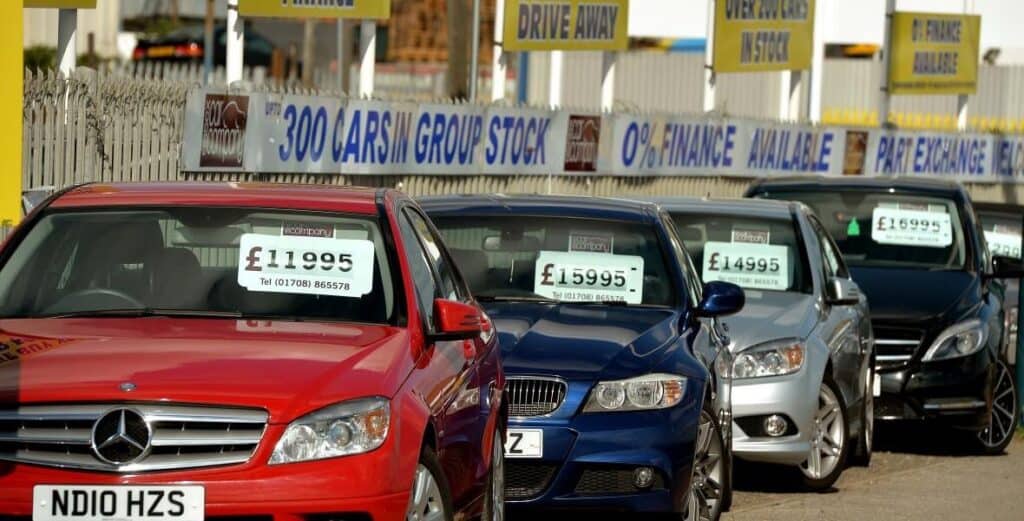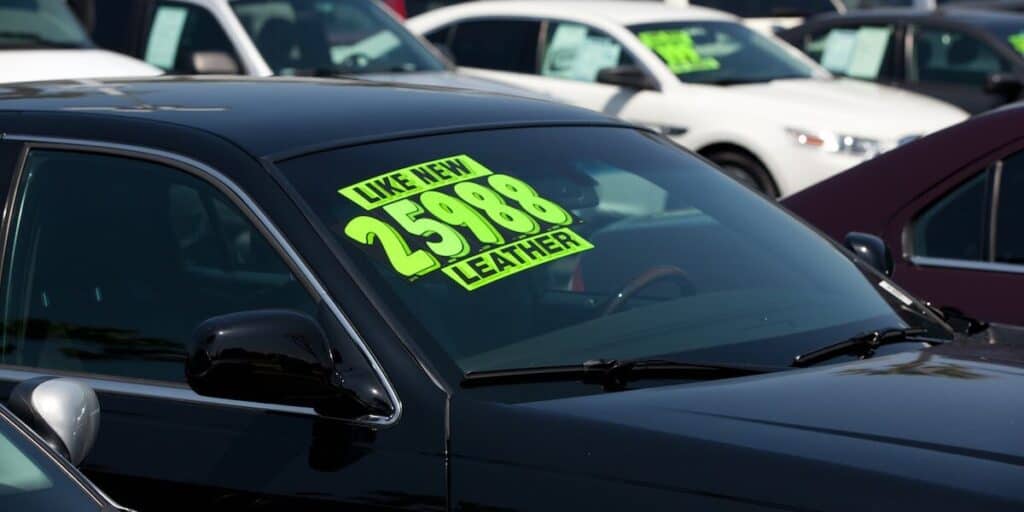Used cars are usually attractive on the financial side. Still, there are red flags to keep mind to ensure you buy only a safe, legal and long-lasting car. If you spot potential problems or anything that looks off at any stage of the bargaining process, you probably want to have a rethink before closing the deal. Here are top warning signs to keep in mind when buying a used car.

1. Car Mileage
Mileage allows you to know how long a car has been on the road. Sure, lower is what you want, but it doesn’t necessarily mean you’ll be getting a good deal purchase. Cars put up for sale after an extended period of use may harbour long-term and potentially costly operational problems. Left unattended for long periods, cars can quickly pick up moisture, dust and particles, all of which encourage rust formation on major components like the exhaust and braking systems. Rubber seals, fluids and tires and batteries are also not safe from deterioration. So you risk paying less on the spot but more on repairs post purchase. Not what you want. Seasonal and sports cars usually have lower mileage, and expectedly so as they are maintained more frequently to avoid long-term storage issues. This notwithstanding, a good practice would be to have a mobile mechanic inspect the car you intend to buy prior purchase.
2. Mismatched Paint
Cars ideally have a uniform colour on all parts. So if a car looks overly new or has certain discoloured parts, you probably have something to worry about. Chances are the car was recently involved an accident and was resprayed to conceal damage, or parts were replaced. To confirm, inspect the panel gaps and shut lines or consider having an expert double check the vehicle’s safety and accident history.
3. You’re not allowed to inspect prior purchase
Now this is an obvious red flag. There’s no reason a seller shouldn’t allow you to inspect a product prior purchase, and even more so when you’ll be parting with thousands of dollars. Hiring an experienced mechanic for an independent inspection is standard practice. If the seller wouldn’t allow that, there’s a good chance they’re hiding something. Walk away. You also want to look up common repair problems for your choice car. Consumer Reports for instance tracks such complaints, making their data available for a fee.
4. Reviews
Thanks to online review sites, it’s easy to verify a business’ reputation in the words of other customers. Where to look? Google, Autotrader and Yelp reviews are great resources. Although you cannot make everyone happy, but if a company has numerous negative reviews and only a few positive ones, you probably don’t want to deal with them. If you’re unsure which dealerships are trusted in your area, the Better Business Bureau has an accredited business directory you might find handy.
5. Unresolved problems
From jerks to vibrations, strange noises, hardshifiting or unusual smells, there are many tell-tale signs that a car is faulty. Thus the need to have a professional mobile mechanic conducts a thorough pre-purchase inspection service before you purchase a used car. While some of these symptoms may only indicate something minor, others can be more serious and make the car unfit for road use. But only an expert mechanic can tell. If you’ve made up your mind on a car, reach an agreement with the seller on who incurs the cost of repairs before sealing the deal.
6. Has undergone modifications
Whether for increased engine power or better specs, many people integrate non-factory software and parts to their cars. Sure, tuning a car is not something bad, but the average user would want to avoid such cars for a few reasons. First, running a modified car could expose critical components to damage and early failure. Also, cars featuring third party components like external software will likely make invalidate warranty coverage, potentially exposing you to costly repairs in the long run.
7. Dashboard Warning Lights
Warning lights are another important thing to look out for when purchasing a used vehicle. The dashboard light can turn on for minor reasons as not fastening the gas cap tightly. So you want to be sure there are no hidden problems in critical areas like the engine. And of course, if you’re not familiar with cars, the only way to know would be to have an expert mechanic inspect the car before you hand over cash.
8. Extensive rust
All cars will experience some rust as they accumulate moisture and particles over the course of normal use. Notwithstanding, you want to avoid cashing in on cars with signs of extensive rust. While worn components are ideally replaced, signs of rust on the frame, for example, could mean the car is running out of life. Replacing this and similar components can be both costly and detrimental to the car in the long run.
9. Recalls
Outstanding recalls means a car has an issue yet to be resolved, usually related to its safety or roadworthiness. You can check to confirm if there are outstanding recalls on your intended car by entering the car’s VIN by going to the manufacturers website. Although the owners do not bear the cost of fixing recall items, if the recall repairs have been outstanding there is a higher chance that other maintenance issues may have been left unattended. The manufacturers website provides information on recall details, allowing you to verify if the recall was fixed.

10. Very Cheap price
For the most part, used cars are expectedly cheaper than out of factory alternatives, but caution is important if the price looks too good. Sure, occasionally, high quality used cars may be on offer at an incredibly cheap price. However, if you’re all about saving more cash, you risk purchasing a car with more hidden faults than you probably bargained for. More often than not, a super low price could mean the seller is looking for a quick deal, and while it doesn’t necessarily mean the car has major faults, it should raise caution and it would be best to evaluate your options by comparing price with similar models before setting for a purchase. Autotrader has a great source of vehicles in their database and also lets you know what the average selling prices are of different vehicle types.
11. History of multiple repairs
Regardless of the terrain of use, cars are liable to more repairs the longer they stay on the road. Hence a used car may come with a long list of past repairs. While a full repair history makes the seller come across as transparent, there’s also the possibility they are cutting their losses and looking to dispose of the car without resolving outstanding faults. You obviously don’t want to have your car spending more time off the road than on it. Ensure to have one of our expert mobile mechanic inspect the car for any problems or simply consider a car with fewer replaced parts.
12. Long list of past owners
The average vehicle owner doesn’t dispose of a car after 1 or 2 years of use. If a 4 year old car has been used by 6 owners, there’s something to worry about. Chances are the car has underlying problems causing past owners to want to let go, and you don’t want to be the next victim. A Vehicle History Report will let you in on how many hands a car has passed through. This report can be purchased from companies like canadadrives.ca and Carfax.
13. Car not purchased by other buyers
Ideally, it doesn’t take long for buyers to snap up any good, used car that is up for sale. So if you’ve seen a car ad run for months without a buyer, it’s probably one of two possibilities; either the price tag is high – something you can verify by finding out the cost of similar cars, or the car has underlying faults making buyers look elsewhere.
14. Questionable titles
Physically owning a car is one thing, legally owning it is another. Before handing over cash, one of the first things you want to do is verify the car’s title holder. If the seller is not the rightful owner of the seller, you risk buying from curbsiders, many of whom are only concerned about their profit margins than the safety of the car.
15. Seller Witholds VIN number
It’s normal to request all relevant information when purchasing a used car. This includes the Vehicle Identification Number (VIN), a unique 17- digit number that makes it easy to verify ownership history and other vital information. So if your seller is unwilling to disclose this number, there’s a good chance they’re trying to conceal evidence, enough reason for you to walk away.
16. Interior parts are severely worn
While a shiny exterior makes a good first impression, it’s important to inspect a car’s interior components too. If a car’s exterior is in stark contrast to its interior, with the latter featuring overly worn parts, consider your options. Engine power and a solid outer are undoubtedly crucial. And while you don’t expect an out-of-factory look, the inner shouldn’t be in an obvious state of disrepair.
